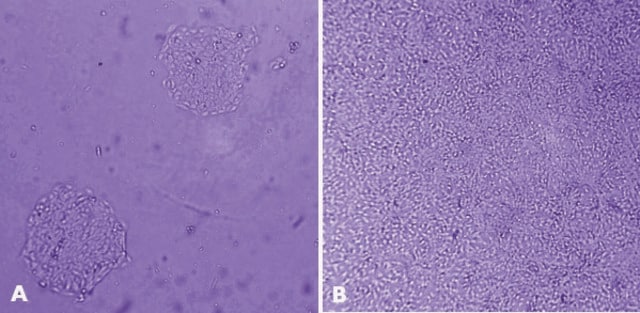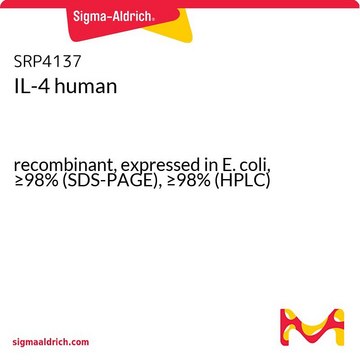SRP3287
IL-34 human
recombinant, expressed in HEK 293 cells, ≥95% (SDS-PAGE), ≥95% (HPLC)
Synonyme(s) :
C16orf77
About This Item
Produits recommandés
Source biologique
human
Produit recombinant
expressed in HEK 293 cells
Pureté
≥95% (HPLC)
≥95% (SDS-PAGE)
Forme
lyophilized
Poids mol.
52.5 kDa
Conditionnement
pkg of 10 μg
Impuretés
<0.1 EU/μg endotoxin, tested
Numéro d'accès UniProt
Conditions d'expédition
wet ice
Température de stockage
−20°C
Informations sur le gène
human ... IL34(146433)
Description générale
Actions biochimiques/physiologiques
Forme physique
Reconstitution
Mention d'avertissement
Warning
Mentions de danger
Conseils de prudence
Classification des risques
Eye Irrit. 2 - STOT SE 3
Organes cibles
Respiratory system
Code de la classe de stockage
10 - Combustible liquids
Classe de danger pour l'eau (WGK)
WGK 1
Point d'éclair (°F)
Not applicable
Point d'éclair (°C)
Not applicable
Certificats d'analyse (COA)
Recherchez un Certificats d'analyse (COA) en saisissant le numéro de lot du produit. Les numéros de lot figurent sur l'étiquette du produit après les mots "Lot" ou "Batch".
Déjà en possession de ce produit ?
Retrouvez la documentation relative aux produits que vous avez récemment achetés dans la Bibliothèque de documents.
Notre équipe de scientifiques dispose d'une expérience dans tous les secteurs de la recherche, notamment en sciences de la vie, science des matériaux, synthèse chimique, chromatographie, analyse et dans de nombreux autres domaines..
Contacter notre Service technique






